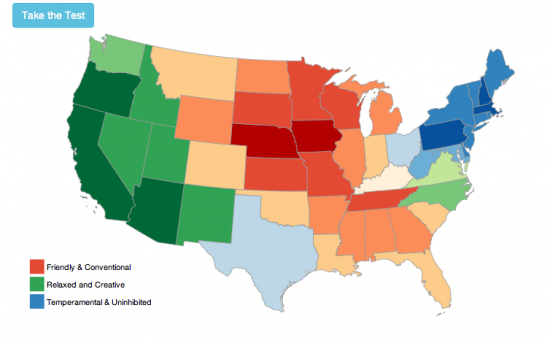
A couple of weeks ago Time posted this United States Mood Map, based on a study published in the October Journal of Personality and Social Psychology.
Normally, we'd take this with a grain of salt, but this was a 13-year study that quizzed about 1.6 million respondents from around the U.S., including 177,085 Californians.
Of The Big Five personality test that Time cites, "the survey measures personality along five different spectra, with the Openness, Conscientiousness, Extroversion, Agreeableness and Neuroticism labels forming a handy acronym: OCEAN."
Californians, News Fix readers will be interested to know, rank No. 2 among states in terms of openness ("curiosity and a preference for novelty," says Time) and all the way down at No. 43 for neuroticism. (We'll have to assume Bay Area housing-seekers and Oakland A's fans were underrepresented.) West Virginia was the most neurotic and Utah the least.